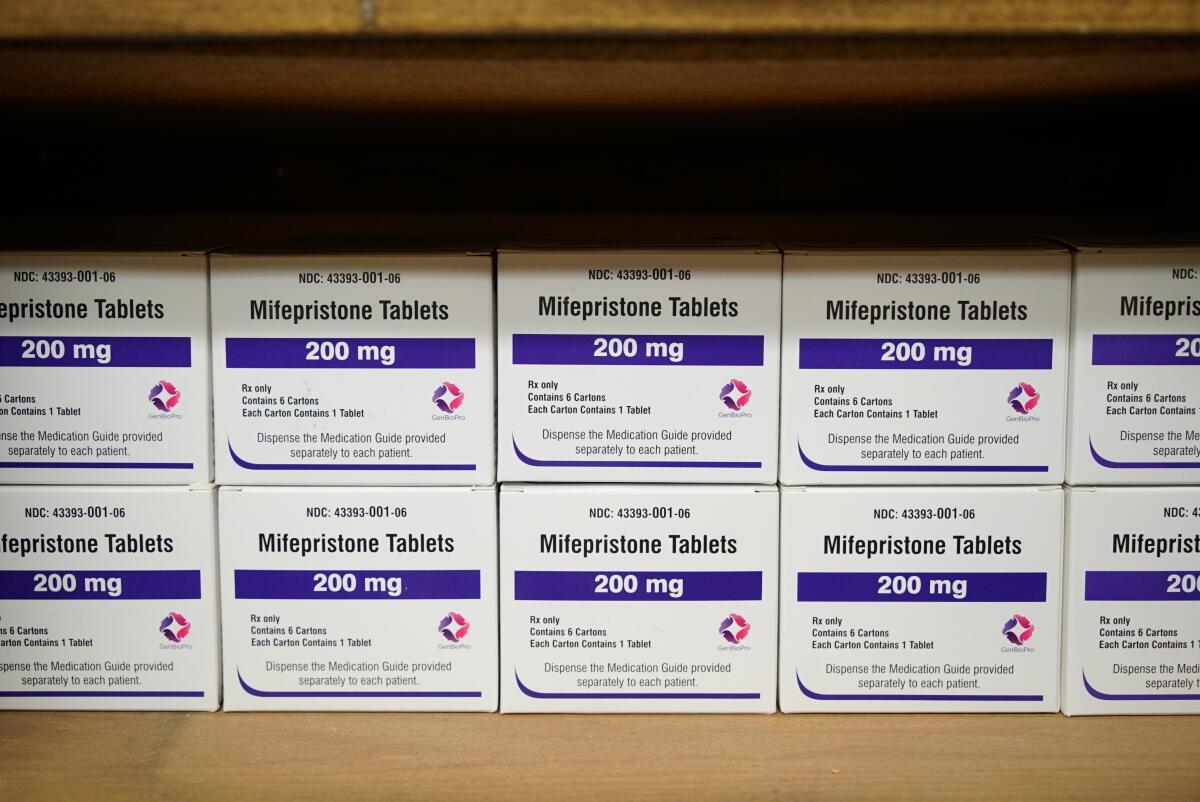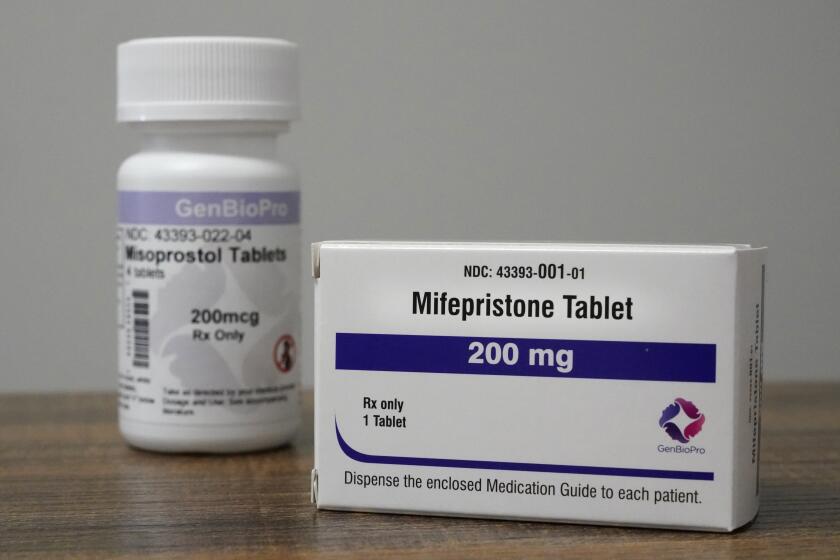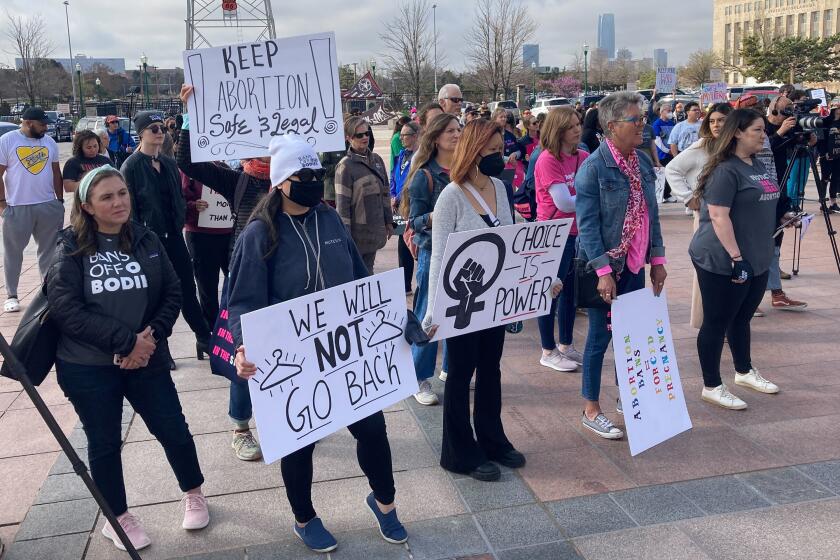Editorial: It’s time to declare a public health emergency for abortion

The Biden administration should declare a public health emergency to ensure everyone in the U.S. has access to abortion medication.
It doesn’t matter that the Supreme Court ruling overturning Roe vs. Wade is not the equivalent of a disease outbreak or a bioterrorism attack (although it does feel like the latter). Abortion care is healthcare, and the court’s June decision in Dobbs vs. Jackson Women’s Health Organization has empowered state legislatures to cut off people in half the country from that care.
According to legal advocates, if Health and Human Services Secretary Xavier Becerra declared a health emergency under the Public Readiness and Emergency Preparedness Act it would allow drugs to be used that mitigate the emergency regardless of state laws banning their use. In this case, that would be medication abortion pills, mifepristone and misoprostol, that have been approved for use during the first 10 weeks of pregnancy by the Food and Drug Administration for more than two decades. This declaration is not about freeing up federal money, but shielding providers and pharmacists for prescribing or dispensing abortion medication in states that have banned abortions.
States should not be able to ban FDA-approved abortion pills from being mailed to anyone in the United States.
Even a declaration that only allows out-of-state providers to prescribe and mail pills to people in states where abortion is banned would greatly expand access. The declaration doesn’t need to exempt providers in the states that have banned abortion in order to help people in those states.
The key point here: The federal act cannot override state bans on abortion procedures — just on abortion medication. But since more than half of abortions in the U.S. are done by medication, that would have a huge impact on abortion access in a country now riven by current or pending abortion bans in more than half the states.
And here is the public health emergency: being forced to carry to term an unwanted pregnancy. Abortion has long been a safe procedure — much safer than pregnancy. An amicus brief filed in the Dobbs case by the American Medical Assn., the American College of Obstetricians and Gynecologists and nearly two dozen other medical groups notes that the risk of death associated with childbirth is “approximately 14 times higher than any risk of death from an abortion.”
Abortion advocates have filed lawsuits in a dozen states to block abortion bans. It may be an uphill battle, but it’s worth fighting.
Even if a woman doesn’t die in childbirth, she faces mental and physical health risks from pregnancy, labor and delivery, such as stress upon the body and gestational diabetes and other complications. Being forced to give birth only adds stress. The authors of the brief argue that evidence indicates being denied an abortion can have a detrimental effect on women’s mental health.
And for poor people and those of color, mortality rates connected to pregnancy are even higher. “Nationwide, Black women’s pregnancy-related mortality rate is 3.2 times higher than that of white women, with significant disparities persisting even in areas with the lowest overall rates and among women with higher levels of education,” according to the brief.
These troubling facts are more than enough justification to declare a public health emergency. This decision will probably invite legal action from states with abortion bans arguing the administration has overstepped. But that shouldn’t stop the Biden administration from immediately taking this important and powerful step. The grim reality is that the Biden administration can’t issue an executive order overturning the Supreme Court’s ruling overturning the Roe decision. The president can’t make this go away like it was all a bad dream. But he can and should do everything in his power to protect abortion access.
More to Read
A cure for the common opinion
Get thought-provoking perspectives with our weekly newsletter.
You may occasionally receive promotional content from the Los Angeles Times.












